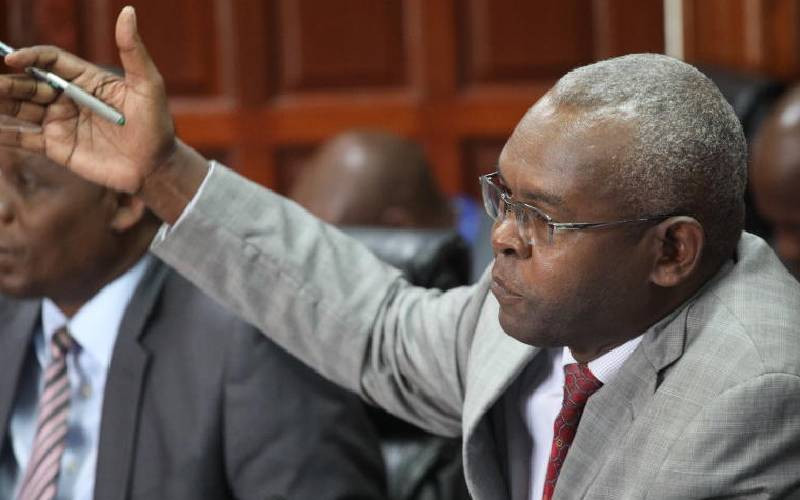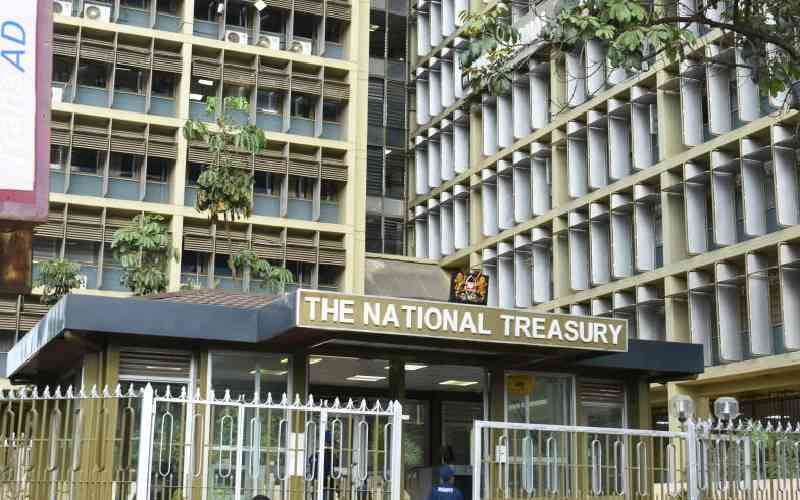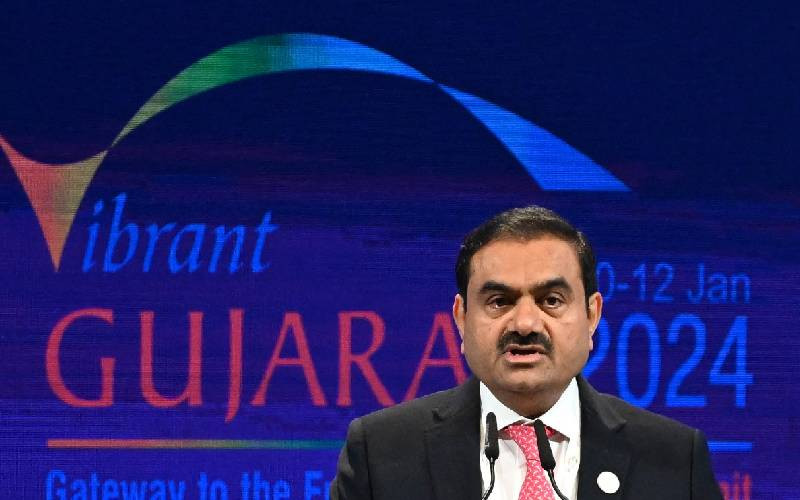
Central Bank of Kenya (CBK) Governor Kamau Thugge has backed the National Treasury’s proposals to increase and introduce various taxes, saying it is necessary to enable the government to raise more revenue and offset public debt.
Speaking yesterday during a virtual briefing with journalists after Wednesday’s Monetary Policy Committee (MPC), which retained the Central Bank Rate at 13.00 per cent, Dr Thugge cited the need for Kenya to meet its debt repayment obligations as one of the reasons why more taxes are necessary.
He made the remarks despite an outcry over the many taxes proposed in the Finance Bill, 2024, which if adopted, will see the cost of essential goods and services skyrocket amid a biting cost of living crisis.
The Bill, which is at the public participation stage, is, for instance, proposing taxes on critical services like banking and mobile money transactions, which experts say has already seen some businesses and even ordinary Kenyans dump formal payment systems with the worst yet-to-come-if MPs approve it.
It proposes to impose VAT at a standard rate of 16 per cent on some financial services such as the issuance of credit and debit cards, telegraphic money transfers, foreign exchange transactions and cheque handling and processing.
Mattress banking
In submissions to the National Assembly Finance and Planning Committee, the Kenya Bankers Association (KBA) warned this would create a barrier to financial inclusion by making basic services unaffordable, a situation that could see Kenyans resort to mattress banking.
“The imposition of 16 per cent VAT on financial services will create a barrier to financial inclusion by making basic services unaffordable,” acting KBA Chief Executive Raimond Malonje said.
- Striking clinical officers pledge free medical care during protests
- Parliament team warns of health disruptions after Bill withdrawal
Keep Reading
“This goes against international best practice where financial transactions are VAT exempt across the globe,” he added.
Proponents of higher taxes in the Kenya Kwanza regime argue that increased revenue is essential to fund vital government services like infrastructure and social programmes.
However, critics warn that excessive taxation could kill already struggling businesses, while pushing others to the informal sector, ultimately harming the economy.
As tax rates under the Ruto administration go higher, traders and individuals are devising ways to evade paying taxes.
This hidden marketplace, where transactions happen in cash and receipts vanish, threatens to rob the government coffers, experts warn.
The World Bank has also cautioned against the frequent tax shifts, saying they create uncertainty for businesses, making it difficult to plan for the future and assess potential returns on investment.
“The low predictability of tax rates, affecting the import and export sector, seems to be challenging FDI (Foreign Direct Investment) inflows. Frequent and unanticipated tax policy shifts create a volatile business climate, erode investor trust and hinder strategic planning,” says the World Bank.
“Such unpredictability, exemplified by abrupt tax rate changes or the introduction of new taxes, directly impacts the cost structures of businesses, especially those in the import-export sector. This instability not only discourages investment but also complicates tax compliance, which could lead to decreased government revenue.”
At the same time, the World Bank says frequent tax shifts by the government can signal a lack of commitment to long-term economic stability, which discourages foreign investors who seek reliable and predictable environments.
It says businesses need a stable tax environment to make sound investment decisions. Frequent changes make it difficult to develop long-term strategies and can lead to missed opportunities, warned the World Bank.
According to the World Bank, unexpected tax changes can also disrupt business operations and directly affect business costs, especially for import/export companies dealing with complex international tax regulations.
 The Standard Group Plc is a multi-media organization with investments in media platforms spanning newspaper print
operations, television, radio broadcasting, digital and online services. The Standard Group is recognized as a
leading multi-media house in Kenya with a key influence in matters of national and international interest.
The Standard Group Plc is a multi-media organization with investments in media platforms spanning newspaper print
operations, television, radio broadcasting, digital and online services. The Standard Group is recognized as a
leading multi-media house in Kenya with a key influence in matters of national and international interest.











